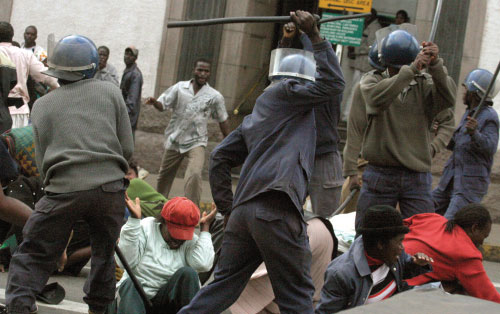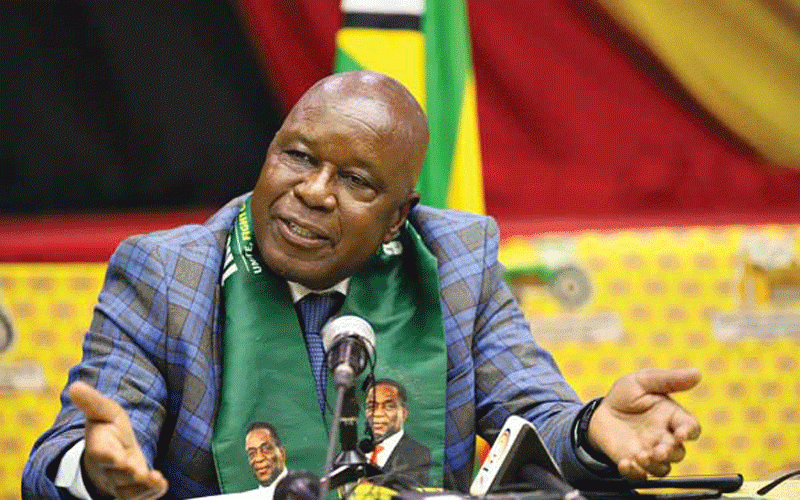
The densely-populated Hopley suburb – south of the capital Harare — is slowly gaining notoriety for stoking political fires between Zanu PF and the Morgan Tsvangirai led-MDC-T.
The fearsome clashes, which occurred on Sunday, resulted in the arrest of 17 MDC-T activists and supporters while 10 others were reportedly hospitalised when law enforcement agents swooped on the opposition party supporters at a rally in Harare South.
Regrettably, this was the second episode of violence in Harare South after MDC-T and Zanu PF supporters clashed the previous Sunday, when ruling party activists reportedly attempted to disrupt the police-sanctioned MDC-T rally. The violent clashes reportedly left over 13 MDC-T supporters injured alongside an unconfirmed number of Zanu PF supporters.
In all the cases, there were innocent people, house owners, children and women who had to endure police harassment and inhaling tear smoke. There is no doubt that the political fights are a result of intolerance by political leaders preparing for the 2018 elections.
Although there has been ongoing low-level political violence around the country, it is clear that an increasing war of words between Zanu PF and opposition party leaders could be the source of the clashes between supporters.

Also due to the factional fights and political manoeuvring in Zanu PF over President Robert Mugabe’s succession, ruling party activists have sporadically been targeting opposition supporters for their increasing support to their political parties.
But it is the police crackdown of the opposition parties’ activists that is worrying as indications point to a well-thought-out campaign to stop them from any contact with the potential voters ahead of the next election.
- Chamisa under fire over US$120K donation
- Mavhunga puts DeMbare into Chibuku quarterfinals
- Pension funds bet on Cabora Bassa oilfields
- Councils defy govt fire tender directive
Keep Reading
Undoubtedly, the aim is to silence the opposition ahead of the election. This, we believe, is wrong as it is as aimed at opposition groups. Zanu PF supporters have been fingered in the clashes, yet only the opposition have been arrested. It appears the police under the instigation of Zanu PF have started with MDC-T to test the waters, and if it doesn’t spark an outcry, it could then spread to other political groups.
Yet the MDC-T denied any wrongdoing and claimed that they had clearance from the police and wondered how the police could suppress them. The clampdown against the MDC-T activists shows that this may be a sustained campaign to eliminate the government’s main rivals. However, what is also unfortunate is Tsvangirai’s call for his supporters to retaliate. That call must be condemned as much as Zanu PF’s shenanigans and political rhetoric.
Political leaders must exercise restraint. They should discourage their supporters from fuelling violence as this has the potential to throw the country into anarchy. Zimbabweans are not prepared for lawlessness or repression of any kind. We therefore call on the government and Zanu PF to refrain from targeting its political opponents at this precarious moment. We also call on international organisations and Western countries with close relationships to the government to raise these concerns at the highest levels.
The opposition has voiced concern over the police clampdown. We are disturbed that these operations targeting the opposition and innocent individuals will create great concern across the world about whether Zimbabwe is a democratic country.
It is about time Zanu PF curbs its crackdown on opposition members and limits on Press freedom. We accept that continued growth in Zimbabwe depends on the free flow of information and open exchanges of ideas.
Hence when all voices are being heard; when people know that they are included in the political process that will make Zimbabwe stronger, more successful and more innovative.
Mugabe’s commitment to democracy must be real and not skin deep.











